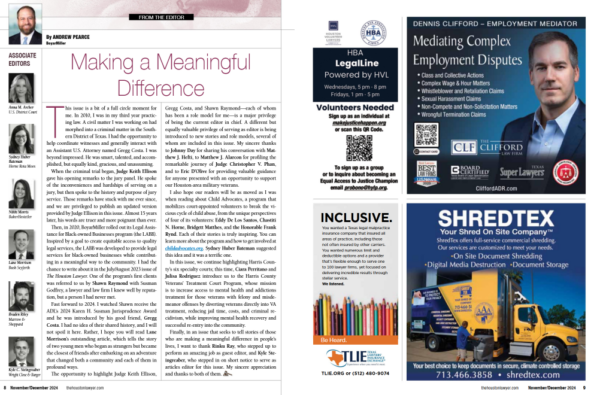With a deep understanding of your business alongside clear and honest communication, we help clients face challenges fearlessly.
Contact us today to learn more about our services and how we can help drive solutions.
Who Can See The Books Of A Closely Held Company?
August 29, 2022
In the practice of handling business disputes, questions regarding the innerworkings of an entity inevitably come up. Business owners want to know the value of the entity in which they have an ownership stake, whether it is making profit distributions, and how corporate funds are being handled.
These questions often lead to a “push-pull” in business litigation between companies and owners regarding access to corporate books and records. On the one hand, a company wants to run its business without getting mired in data requests. On the other hand, owners of a company want information about how that company is running. Our business litigation lawyers have justified both positions, always depending upon the circumstances.
So, can an owner of a closely held company get access to that company’s books and records? The answer is that it depends, but here are a few factors that will impact the outcome:
- What is the owner’s percentage of ownership in the entity, and how long has that owner had such an ownership interest? In some cases, this impacts what information the owner is entitled to. For instance, to have a statutory right to inspect books and records in Texas, a shareholder of a corporation must either (1) have held the shares for at least 6 months or (2) be at least a 5% owner.
- What is the purpose of the request for information? Is it to value shares, investigate corporate misconduct, or otherwise? An owner must have an articulable “proper” purpose to justify accessing corporate records.
- What sort of a business entity are we talking about? Is it a limited liability company (LLC), a corporation, or a partnership? The type of entity affects an owner’s statutory right to inspect company records.
- What do the organization’s documents say about books and records inspections? Oftentimes, a company agreement will speak to this very issue.
- How broad is the request? The narrower it is, the more likely access will be granted.
In commercial litigation, these factors will impact whether and to what extent the owner of a closely held company can access that entity’s business information and corporate books and records. Be sure your legal advisor considers each one.
BoyarMiller’s commercial litigation attorneys have experience across a wide range of business disputes. Contact us for more information



